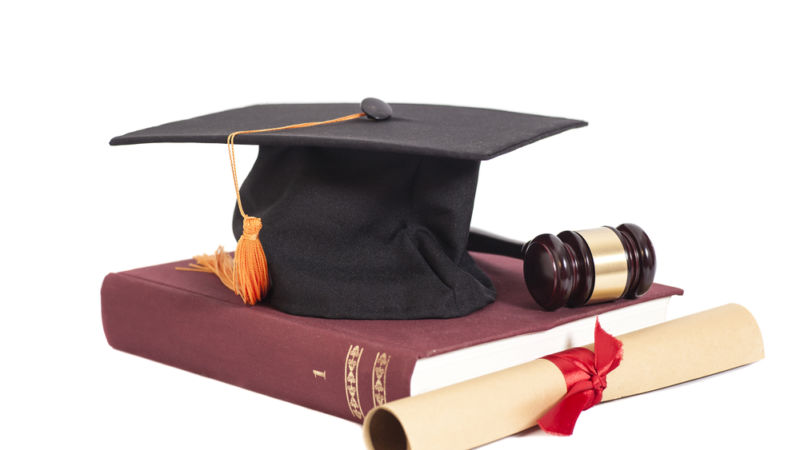Michelle Valteau, former Senior Director of the Center for Professional Development at Emory Law School, discusses her views on the future direction of legal education and how law schools should be evolving to serve most students
The ABA launched the Commission on the Future of Law Education and in February held an open forum at the ABA Mid-Year Meeting to collect information from the legal community on what the dramatic changes in the legal profession in the next decade and beyond will be. In particular, the key areas of focus are bar exam passage rates and identifying the skills that future lawyers will need, among others.
We sat down with Michelle Valteau, former Senior Director of the Center for Professional Development at Emory Law School and now client manager in the Thomson Reuters Large Law business, to gain her views of the skills gaps of law school graduates and what she thinks the law schools should be doing better to prepare their students to be “practice aware.” She also suggests how aspiring law students might benefit from some type of work experiences before starting law school.
Legal Executive Institute: You’re coming from a role where you provide career guidance to hundreds of law students, and in your view, what are the skill gaps that law students still need entering the practice of law?
Michelle Valteau: Many law students come to law school directly from undergrad, making the complex legal environment their first real work experience. So, career-related education has to take place on multiple fronts from the business of law to specific employers and practice areas.
It’s very difficult to find the right moments to impart the most practical information to students. During their first year, they’re getting acclimated and their doctrinal and research and writing classes really prevail. By the second year, they’ve had a summer work experience and are more ready to internalize that information. Ideally, though, career guidance should be viewed as a critical educational component of all three years.
Students who have work experience prior to law school have a different perspective. I love to see them in law school classes because they’re such powerful messengers for their fellow students. Talking about their experiences and sharing their wisdom gives these students the opportunity to emerge as natural leaders, and I’m always glad to see law schools and law firms recognize that.
Legal Executive Institute: Based on what you said about the challenges in year one and the skills, it would seem to me that there would be ways to deliver that type of information through, like, different career talks or career tracks. Is that right?
Michelle Valteau: At Emory, we developed student organizations that are focused around particular practice areas. We encouraged students to join multiple organizations to learn about the day-to-day work of specific practice areas and gain access to resources to help them learn more.

Students who have work experience prior to law school have a different perspective. I love to see them in law school classes because they’re such powerful messengers for their fellow students.
Structuring the career tracks as student organizations helped with participation and buy-in because students tend to trust their colleagues. Staff members helped the student organization leaders with big-picture planning, bringing attorneys to campus, encouraging attendance at industry-related events and promoting resources in our community.
Legal Executive Institute: Tell us about the kind of leadership development the law school offered. Can you speak to the leadership programming offered on emotional intelligence, influencing, and other personal effectiveness skills, such as business communication and public speaking?
Michelle Valteau: We baked the emotional intelligence and personal effectiveness/branding piece into our job search planning and preparation training. Our goal was for students to develop a holistic professional narrative that they could articulate to potential employers. The bedrock of that was to help them identify their unique strengths and values.
The next step was to tap into the strategic opportunities that law school offers to enhance their professional narratives. We offered self-assessment tools coupled with individualized counseling. This combination provides the students with the tools they need to identify, pursue, and then articulate a path in a way that makes sense to legal employers.
Legal Executive Institute: In your view, what could law schools be doing better to serve the needs of their law students to make them better prepared to be “practice aware?”
Michelle Valteau: In most law schools, curricular decisions are made by tenured faculty members who, in some cases, have little practice experience — their career paths are often vastly different from what their students will experience. So there’s an aspect of education that needs to happen at the faculty level so that the decision-makers understand that we’re doing the students a disservice by not providing more practical training.
Recently, the ABA has increased the experiential learning requirements for law school graduates. I strongly agree with this because there’s no substitute for hands-on training, and the requirement forces law schools to integrate more experiential opportunities.
Legal Executive Institute: What are the challenges for law schools in making this shift and what would drive the need to move beyond the status quo past the point discussed earlier about tenured professors.
Michelle Valteau: Part of the problem is that there are just so many challenges facing law schools at this time; for example, applications are down across the country and have been for a few years. This translates to schools having to spend more to fill their incoming classes when there are fewer financial resources at their disposal. Bar passage rates have also been down across the country, impeding the employment success of recent graduates.
These pressures are not dissipating and are requiring law schools to take a long, hard look at how we prepare students. I hope that through engaging in this self-reflection, law schools will spearhead changes that will yield a generation of attorneys that’s more ready to succeed in a rapidly evolving legal market.
Legal Executive Institute: The one intriguing aspect to this whole reality is the role of big law firms, which hires 20% to 25% of the law student graduates each year — they have a critical role to play in addressing this challenge. The law firms — which put so much emphasis on law school ranking, GPA, LSAT-scores, among other things — could adjust their candidate-selection requirements to drive some of this change at law schools. But if they are going to keep focusing on law school ranking and some of those other screening measures, then, it’s incentivizing the law schools to maintain the status quo. What are your thoughts on that? Do you agree? Or, what would make you disagree with that?
Michelle Valteau: I think that’s a very astute observation. As long as law firms, of any size, base hiring decisions on the traditional factors, they are playing into the maintenance of the status quo. The percentage you pointed out is important, though. As currently structured, law schools aren’t failing the top 20% of the class, it’s the 80% of students that law schools need to change for. Most law school career professionals spend the vast majority of their efforts and energy on that 80%, and I hope that the faculty and administration beyond the career centers will increasingly shift their focus there as well.







